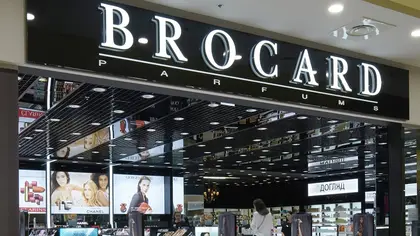Since the start of Russia's full-scale invasion of Ukraine, the Ukrainian political leadership has been urging the international community to seize Russian assets abroad and redirect them to Ukraine. At the same time, the government has implemented numerous restrictions and prohibitions targeting Russians residing within the country, with the aim of preventing Russian-affiliated businesses from profiting from Ukrainian consumers.
Assets and funds belonging to Russian businesses were frozen, and strict controls on money flow were put in place to hinder their ability to be hidden or taken out of the country. Ukrainian politicians have prohibited Russian citizens from transferring ownership of movable and immovable property, corporate rights, as well as companies and shares, except for long-term residents of Ukraine who hold a Russian passport.
JOIN US ON TELEGRAM
Follow our coverage of the war on the @Kyivpost_official.
However, in reality, various loopholes have been identified that have allowed businesses connected to Russians to continue their operations.
An investigation by Bihus.info and Toronto.tv revealed that Russian businessmen have taken advantage of inconsistent legislation and the absence of specific penalties for violating these prohibitions, particularly among notaries. Furthermore, Russians can obtain dual citizenship without renouncing their Russian citizenship, and companies can be transferred to individuals holding non-Russian passports.

Ukraine Conducts Nationwide Raids Over Illegal Weapons Trade
One prominent example of a Russian business that operates in Ukraine is the "Brocard" perfume and cosmetics chain. While the company "Brocard-Ukraine" was owned by the Russian national Tatyana Volodina, she managed to restructure ownership through a series of Cypriot and Russian firms, including the Cyprus-based company "Indenon Holdings Limited." Volodina also owns companies through an identical network called "L'Etuale" in Russia.
The Bureau of Economic Security announced the seizure of Volodina's assets totaling Hr. 420 million on Sep. 8, 2022. Additionally, more than 700 thousand items imported for sale in her network of stores were confiscated.
Despite the Podilsky District Court of Kyiv seizing 100% of the corporate rights of the "Brocard" cosmetics chain, Volodina transferred the business to the holding company of her French supplier, Philippe Benacin, effectively making it the property of a French citizen.
Another example is the "Marmalade Kit" network of sweet shops which can be found in several major Ukrainian cities. Prior to the invasion, the business was flourishing, with profits in Ukraine reaching nearly Hr. 50 million in 2021.
The network's main owners were Russians Maxim Korotkov, Nikita Kasyanov, and Alexey Pavlov, with Pavlov also owning the "Sushi Master" chain of food establishments with ties to other Ukrainian companies such as "Konti-Smak," "Trey-Gard," and "Zaporizhtrade."
A Ukrainian citizen, who served as a senior manager at "Sushi Master," acquired a small portion of the "Marmalade Kit" business and re-registered it in the summer of 2022.
In the defense sector, the Chernivtsi plant formerly known as "Quartz" has shifted its focus to renting out premises. Investigation by the Center of Public Investigations revealed that the main owners, Alexander Bakhtin and Olesya Yurchak, are also Russian. However, the plant has a third shareholder, Valery Gavrilyuk, who holds both Russian and Romanian passports and is resident in Cyprus.
In 2022, the local national police initiated criminal proceedings against the "Quartz" plant, noting the ownership by Russian citizens. Unfortunately, this did not result in asset blockage or confiscation, as the ownership shares were transferred and reissued.
Another Russian business involved in circumventing Ukrainian legislation is the hotel group "Reikartz," which operates around 60 hotels under various brand names such as "Reikartz," "Optima," "Alliance City," and "Raciotel." The primary beneficiary, Russian citizen Yuri Vasin, sought to distance himself from his Russian ties as the full-scale war began.
He changed his citizenship to Turkish and registered his companies in Ankara. Eventually, the registration data showed Yuri Harson, a German passport holder replaced Vasin. However, it was revealed that Harson was a mere figurehead while, Yuri Kharson the real leader is a realtor who had received shares in the business from other Russian partners of Vasin.
The final example is the company "Europe Uno trade Ukraine," which operates a chain of stores known as "Vesela Vytivka" that specializes in holiday products. In 2021, the network reported a turnover of HR. 170 million. This Ukrainian company is fully owned by a Russian company of the same name, with ultimate beneficiaries including both Belgian and Russian citizens.
In 2022, the network continued its operations in Ukraine by claiming that the ultimate beneficiary was solely a Belgian citizen, but no official confirmation was provided. Curiously, the Russian counterpart of this “Belgian company” still operates within the territory of Russia.
These examples highlight that Russian businesses are not the only ones continuing their operations in Ukraine despite the conflict. Bihus.info and Toronto.tv's investigation reveals that the restrictions imposed on Russian businesses are selectively enforced.
For instance, in the summer of 2022, the assets of "Vinnytsapobutchim," a subsidiary of the Russian company "Nevskaya Cosmetics," were seized. However, due to relevant moratoria, the state transferred the seized assets to an agency responsible for asset search and management, effectively allowing the business to find a new manager.
You can also highlight the text and press Ctrl + Enter










